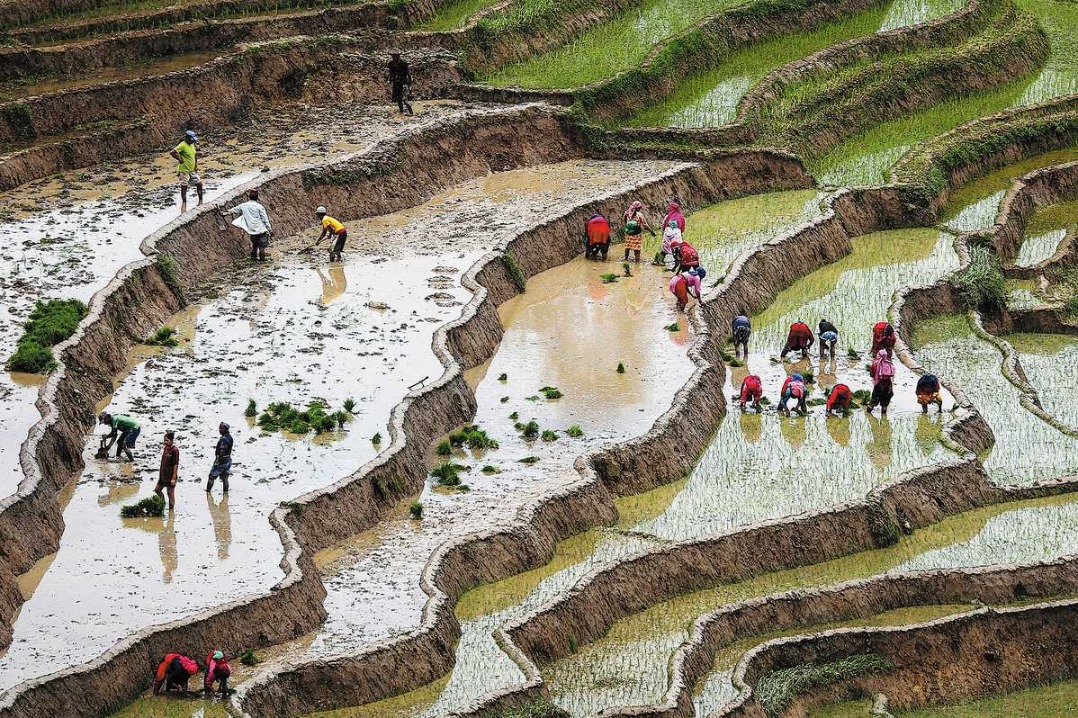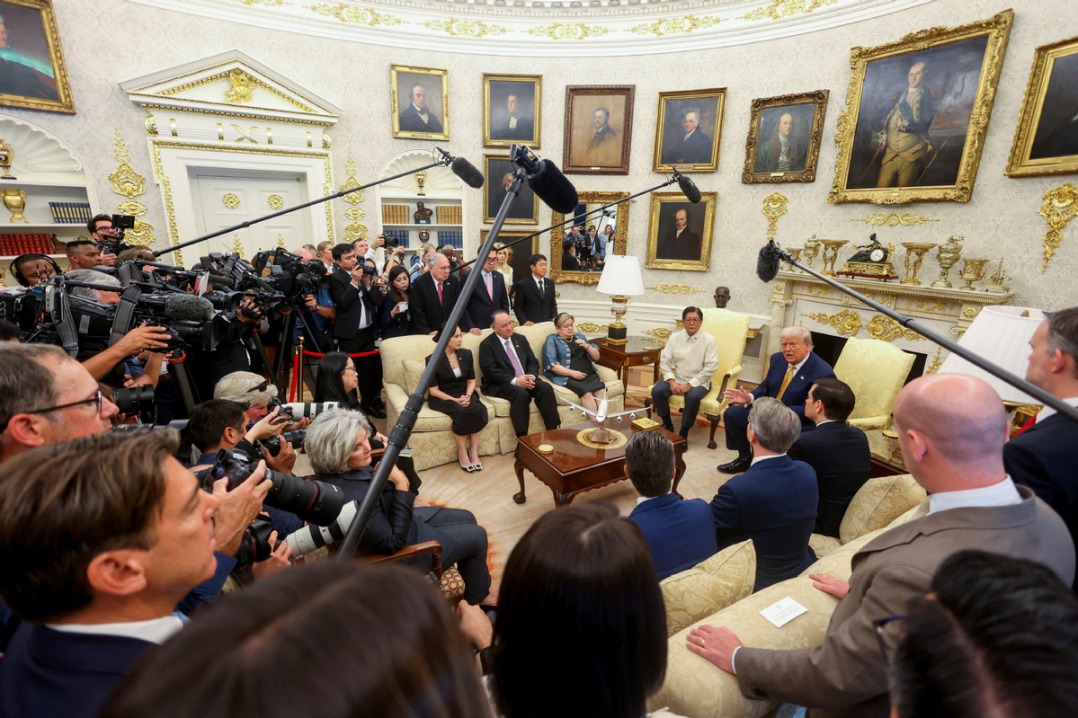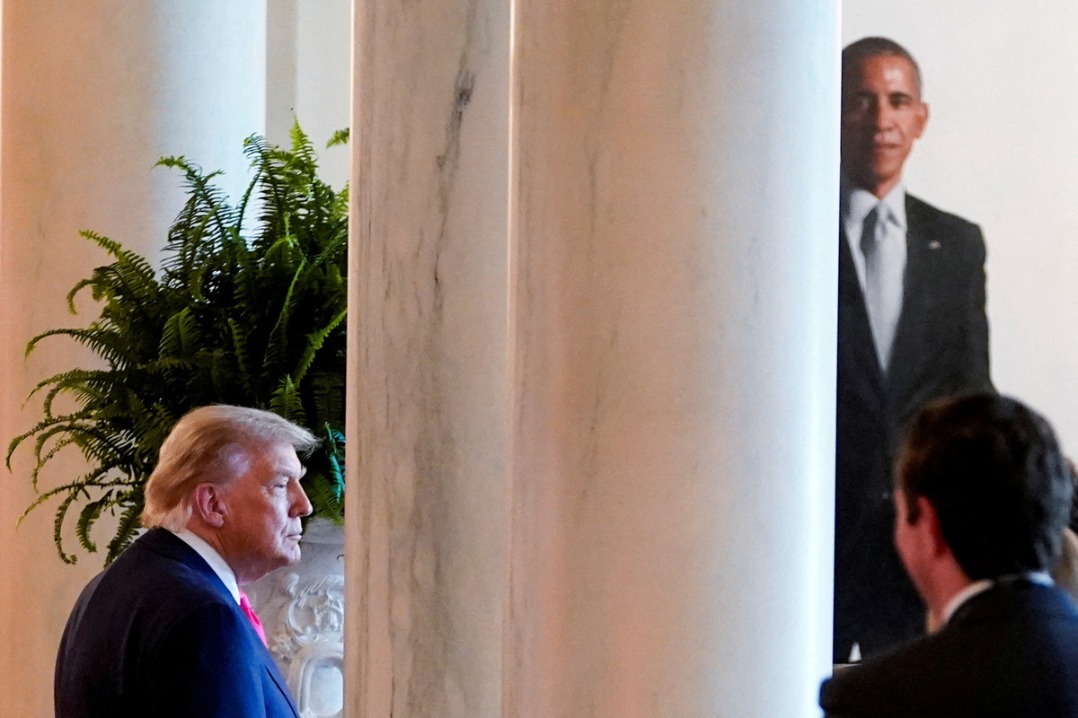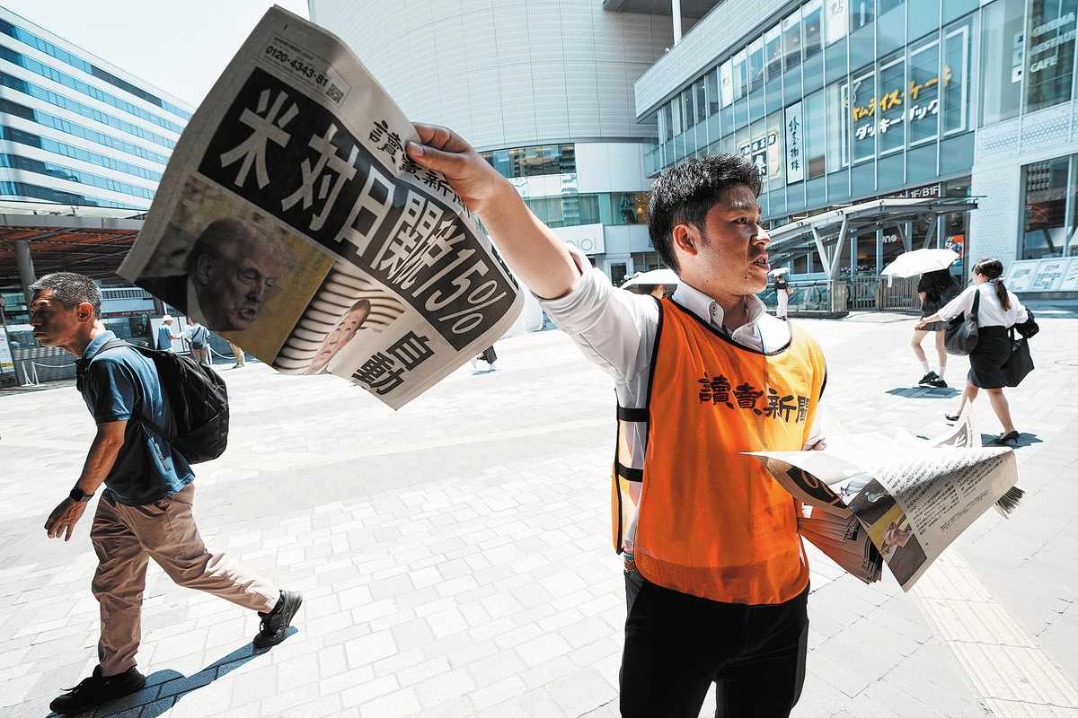China-aided railway to help South American economy

The Bi-Oceanic Railway connecting the Pacific and Atlantic oceans across South America is about to become a reality.
Brazil and China recently signed a memorandum to connect the ports of Chancay in Peru and Ilheus in Brazil with at least five stops at dry ports along the way.
Signed between Infra S/A, a Brazilian state-owned company, and China Railway Economic and Planning Research Institute, the project will take advantage of existing tracks and connect them to new ones, forming a complete 5,000-kilometer route across the northern part of the subcontinent.
The area set to benefit most is the "soy belt" in Brazil, which will then have the option of exporting directly to China from Chancay. Mauricio Buff on, president of the Association of the Producers of Soy, said the freight cost is the first consideration when it comes to distribution.
"The logistics of agricultural products, from farming crops to transporting the final product, has a heavy impact in our value chain. This project will generate profits for producers and improve the economy of the region and country," Buffon said.
Brazil exports 73 percent of its soy to China, according to the association. In 2024, the export of 98.81 million tons of soybean resulted in $42.9 billion in revenue, accounting for 12.7 percent of Brazil's exports.
Buffon argues that this new railroad would be an efficient tool in the competition against soy from the United States.
"There are also new expected places of soy exportation, as Argentina has good quality soy and invests a lot in it, or Africa is growing in infrastructure and will soon be competing in the highest shelf of the area. Nowadays, Brazil and United States dominate the market, but we have to be prepared for a harder competition in a few decades," Buffon said.
Peruvian producers of fruits and vegetables are very interested in the Bi-Oceanic Railroad.
Elkin Vanegas, president of the Fruits and Vegetables Committee of Peruvian Exporters Association, said, "In Peru, we have a high cost for fuel and highways that subtracts a high amount of profit of the exporters. So, any kind of infrastructure initiative is welcome. A railroad like that would reduce the cost by about 25 to 30 percent."
According to the committee, Peru earned $12.7 billion from exporting 611 products to 142 destinations. Blueberries, grapes, avocados, cocoa and coffee are the most exported goods, all of them produced in the northern territory.
Around 56 percent of these products go to the US, and 13 percent to China.
"For us producers of perishable cargo, time is essential, especially when it is destined to Asia. With road transport, we take at most 60 days to make their way to Chancay. With train terminals in dry ports, we could send the fruits and vegetables in maybe 25 days," Vanegas said.
Building along current routes
This is not a new enterprise for Brazilian governments. In the early 21th century, a bi-oceanic railway was planned to connect the ports of Santos in Brazil and Ilo in Peru. The project also included ports in Bolivia. However, it was interrupted due to political unrest.
The secretary of Railway Mode in the Ministry of Transports, Leonardo Ribeiro, noted the differences between the old and new projects and assured that this time it will be completed.
"In this memorandum with China Railway, Brazil finds itself in a more established moment, with a current legal framework of railroads that guarantees a whole project with clear stages. We are already building the tracks from Atlantic to Central Brazil."
Other stations would include Mara Rosa in the state of Goias, and Lucas do Rio Verde in the state of Mato Grosso. Most tracks in this area are already in use or under construction.
"We have the necessary governance to gather public administration around the project and make an alignment of different methods and studies. We will discuss methods of financing and possible public-private partnerships," Ribeiro said.
Peruvian Minister of Foreign Relations Elmer Schialer said that the Brazil-China memorandum does not bind Peru's actions, but the country is an inevitable partner and is open to negotiations.
According to the Ministry of Transports in Brazil, the project will respect the plans of Peru, which has its own priorities and will adjust them with Brazil after diplomatic conversations.
The writer is a freelance journalist for China Daily.
































